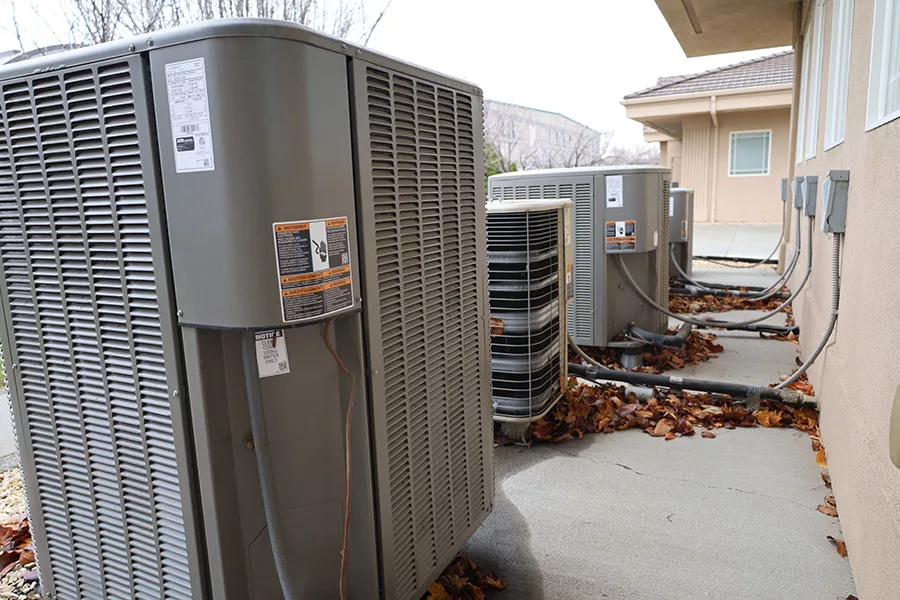
Home » Washington’s voter-approved natural gas measure snared in two lawsuits
Washington’s voter-approved natural gas measure snared in two lawsuits
Opponents say Initiative 2066 is unconstitutional and should be tossed out. Sponsors want a court to compel a state building panel to adopt changes made by the measure.

December 13, 2024
Legal wrangling over the ballot initiative blocking Washington’s efforts to phase out natural gas use in homes intensified when opponents sued, alleging the measure violates the state constitution and should be tossed.
The lawsuit, filed in King County Superior Court, argues Initiative 2066 is unconstitutional because it runs afoul of a provision limiting citizen initiatives to no more than one subject and requiring them to contain the full text of the portion of state laws they would alter.
Plaintiffs, who include Climate Solutions, Washington Conservation Action, Front and Centered, King County and the city of Seattle, also seek an injunction to prevent the initiative from being implemented. The state of Washington is the sole defendant.
“This Initiative is too broad to be implemented constitutionally. It could affect regulations that protect our air, protect public health, ensure building safety, and respond to the realities of climate change,” Seattle Mayor Bruce Harrell said.
The Dec. 11 action comes after sponsors of Initiative 2066 sued on Dec. 6 to force a state building panel to bring Washington’s energy rules for new construction in line with requirements in the initiative. The measure passed in November with 51.7% of the statewide vote.
The Building Industry Association of Washington filed its lawsuit in Thurston County against the Washington State Building Code Council. It says voter-approved changes went into effect with certification of the election results Dec. 5.
“Millions of voters have spoken and Initiative 2066 is now law,” said association Executive Vice President Greg Lane. “Above all else, the members of the State Building Code Council have a duty and obligation to follow state law.”
One measure, two lawsuits
Initiative 2066 takes aim at the state’s combination of regulations and laws to move swiftly away from natural gas toward technology like electric heat pumps.
It aims to unwind changes to the energy code, approved by the state Building Code Council, that went into effect in March. Those rules offer builders permitting incentives for choosing heat pumps – which provide both heating and cooling in the same unit – instead of natural gas furnaces.
The 21-page measure repeals provisions in a state law, House Bill 1589, intended to accelerate Puget Sound Energy’s transition away from natural gas. The initiative also requires utilities and local governments to provide natural gas to eligible customers. And it prevents approval of utility rate plans that end or restrict access to natural gas, or make it too costly.
Opponents contend that the measure is unconstitutional because it deals with at least two different subjects – the law concerning future planning by Puget Sound Energy and the array of changes to the state energy code.
Their suit also contends it “improperly amends existing laws” by not spelling out the full text of proposed alterations. And a third claim is that the ballot title did not fully describe for voters what the initiative would do.
Advocates maintain that I-2066 backers misled Washington voters with an extensive misinformation campaign that did not address its broad scope and potential harms, including higher energy bills and reduced access to energy efficiency upgrades.
People thought they were voting on one thing, natural gas, and found out they were voting on others, Leah Missik, deputy director with Climate Solutions, said Dec. 11.
“With this lawsuit, we are glad to be standing up to misinformation and to challenge industry interlopers in Washington politics,” she said.
Lane has repeatedly brushed aside those arguments, saying Initiative 2066 was carefully crafted with such a challenge in mind and that every section addresses protecting the choice to access and use natural gas.
“Those who want to ban natural gas have been clear that they’ll use every avenue available to undermine Washington’s democracy and the people of Washington’s right to initiative. We stand ready to fight,” Ashli Penner, general counsel for the building association, said Dec. 11.
A hearing on the constitutional challenge is expected early next year. Ultimately, the state Supreme Court may have the last word, said attorney Kai Smith with Pacifica Law Group which is representing the plaintiffs.
Meanwhile, officials with the Building Industry Association of Washington said attorneys for the state will be responding to the group’s complaint in January. It could be months later before the matter comes to trial.
Before suing, the builders’ group pressed the state Building Code Council to quickly adopt changes through emergency rules.
Instead, in late November, the council voted to have a technical advisory group review revisions made to the residential and commercial building codes earlier in the year that are targeted by the initiative and recommend any changes needed to true them up.
At the time, council members said they wanted to be deliberative, knowing there was a potential for court challenges that could roil the regulatory landscape. They viewed their approach as a “good faith effort” to comply without disrupting or creating regulatory uncertainty for builders.
This story is republished from the Washington State Standard, a nonprofit, nonpartisan news outlet that provides original reporting, analysis and commentary on Washington state government and politics.
Latest News Energy
KEYWORDS December 2024





